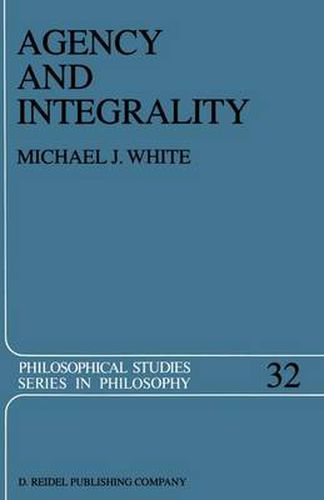Readings Newsletter
Become a Readings Member to make your shopping experience even easier.
Sign in or sign up for free!
You’re not far away from qualifying for FREE standard shipping within Australia
You’ve qualified for FREE standard shipping within Australia
The cart is loading…






This title is printed to order. This book may have been self-published. If so, we cannot guarantee the quality of the content. In the main most books will have gone through the editing process however some may not. We therefore suggest that you be aware of this before ordering this book. If in doubt check either the author or publisher’s details as we are unable to accept any returns unless they are faulty. Please contact us if you have any questions.
It is not very surprising that it was no less true in antiquity than it is today that adult human beings are held to be responsible for most of their actions. Indeed, virtually all cultures in all historical periods seem to have had some conception of human agency which, in the absence of certain responsibility-defeating conditions, entails such responsibility. Few philosophers have had the temerity to maintain that this entailment is trivial because such responsibility-defeating conditions are always present. Another not very surprising fact is that ancient thinkers tended to ascribe integrality to what is (to on). That is, they typically regarded what is as a cosmos or whole with distinguishable parts that fit together in some coherent or cohesive manner, rather than either as a unity with no parts or as a collection containing members (ta onta or things that are ) standing in no natural relations to one another. 1 The philoso phical problem of determinism and responsibility may, I think, best be characterized as follows: it is the problem of preserving the phenomenon of human agency (which would seem to require a certain separateness of individual human beings from the rest of the cosmos) when one sets about the philosophical or scientific task of explaining the integrality of what is by means of the development of a theory of causation or explanation ( concepts that came to be lumped together by the Greeks under the term aitia ) .
$9.00 standard shipping within Australia
FREE standard shipping within Australia for orders over $100.00
Express & International shipping calculated at checkout
This title is printed to order. This book may have been self-published. If so, we cannot guarantee the quality of the content. In the main most books will have gone through the editing process however some may not. We therefore suggest that you be aware of this before ordering this book. If in doubt check either the author or publisher’s details as we are unable to accept any returns unless they are faulty. Please contact us if you have any questions.
It is not very surprising that it was no less true in antiquity than it is today that adult human beings are held to be responsible for most of their actions. Indeed, virtually all cultures in all historical periods seem to have had some conception of human agency which, in the absence of certain responsibility-defeating conditions, entails such responsibility. Few philosophers have had the temerity to maintain that this entailment is trivial because such responsibility-defeating conditions are always present. Another not very surprising fact is that ancient thinkers tended to ascribe integrality to what is (to on). That is, they typically regarded what is as a cosmos or whole with distinguishable parts that fit together in some coherent or cohesive manner, rather than either as a unity with no parts or as a collection containing members (ta onta or things that are ) standing in no natural relations to one another. 1 The philoso phical problem of determinism and responsibility may, I think, best be characterized as follows: it is the problem of preserving the phenomenon of human agency (which would seem to require a certain separateness of individual human beings from the rest of the cosmos) when one sets about the philosophical or scientific task of explaining the integrality of what is by means of the development of a theory of causation or explanation ( concepts that came to be lumped together by the Greeks under the term aitia ) .